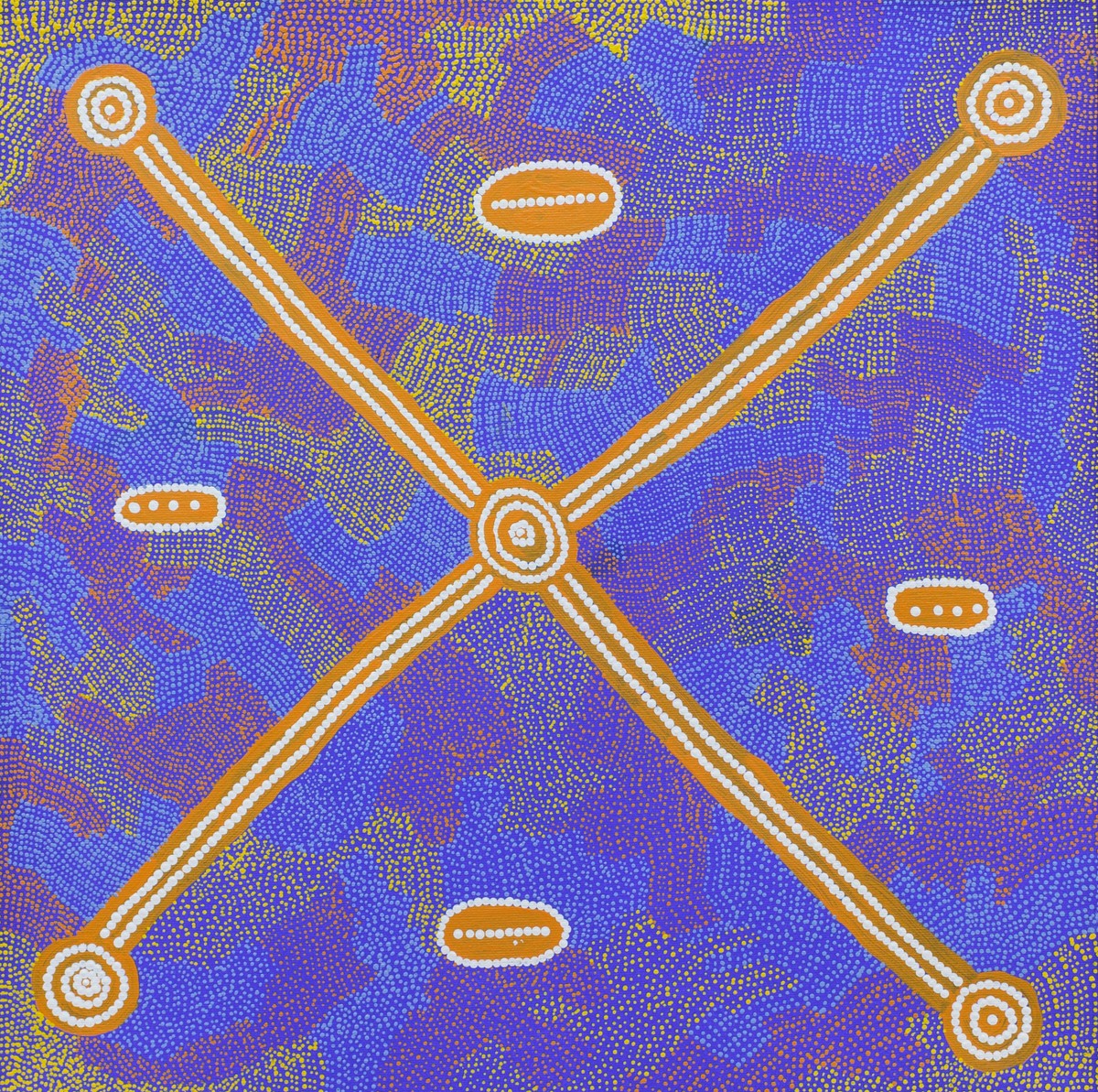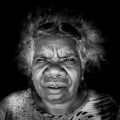Description
Cynthia depicts the story of Karinyarra (Mt Wedge), located half way between Papunya and Yuendumu North of Haasts Bluff. In the Dreamtime, the fresh water flowed from these rock holes and into the lake where it become salt water. The rock holes are a place of bush onion dreaming (yalka). Here, the women dig for bush onions. Karinyarra is surrounded by many sacred sites.
Cynthia was passed down the rights to paint her grandmother’s Tjukurrpa from this country from her father, Timmy Jugadai.
The rainbow snake came down to Mt Wedge from the north/east. When it arrived at Mt Wedge it covered some or the waterholes and made big sandhills. Now there is only one waterhole that sometimes has water in it. This is because the snake remains there and can take and put back the water. The Nakamarra women are the traditional owners of this country and it is with their song that they can sing up the snake to bring water again. Cynthia says, “Father told me to do [paint] that rock hole, sandhill and onion. When there is no water the snake has taken is back. All those old ladies are gone now, only Tilau Nangala from Papunya can still sing that snake.”
Cynthia recalls when she started painting that story, “Me and my husband came here, we saw them painting. Thinking of my fathers story [he said], You can only paint your grandmothers story, Karirnyara. Those little dots, rockholes, onion dreaming, that little hole where the snake covered it up, that rainbow snake – he covered all the rockholes and made the sandhills”.
Karinyarra (Mt Wedge)
Size
50 × 50 cm Acrylic on Belgian Linen
Catalog no
23-cm290
Categories
Paintings, Ready to hang on the wall
$660
Description
Cynthia depicts the story of Karinyarra (Mt Wedge), located half way between Papunya and Yuendumu North of Haasts Bluff. In the Dreamtime, the fresh water flowed from these rock holes and into the lake where it become salt water. The rock holes are a place of bush onion dreaming (yalka). Here, the women dig for bush onions. Karinyarra is surrounded by many sacred sites.
Cynthia was passed down the rights to paint her grandmother’s Tjukurrpa from this country from her father, Timmy Jugadai.
The rainbow snake came down to Mt Wedge from the north/east. When it arrived at Mt Wedge it covered some or the waterholes and made big sandhills. Now there is only one waterhole that sometimes has water in it. This is because the snake remains there and can take and put back the water. The Nakamarra women are the traditional owners of this country and it is with their song that they can sing up the snake to bring water again. Cynthia says, “Father told me to do [paint] that rock hole, sandhill and onion. When there is no water the snake has taken is back. All those old ladies are gone now, only Tilau Nangala from Papunya can still sing that snake.”
Cynthia recalls when she started painting that story, “Me and my husband came here, we saw them painting. Thinking of my fathers story [he said], You can only paint your grandmothers story, Karirnyara. Those little dots, rockholes, onion dreaming, that little hole where the snake covered it up, that rainbow snake – he covered all the rockholes and made the sandhills”.

